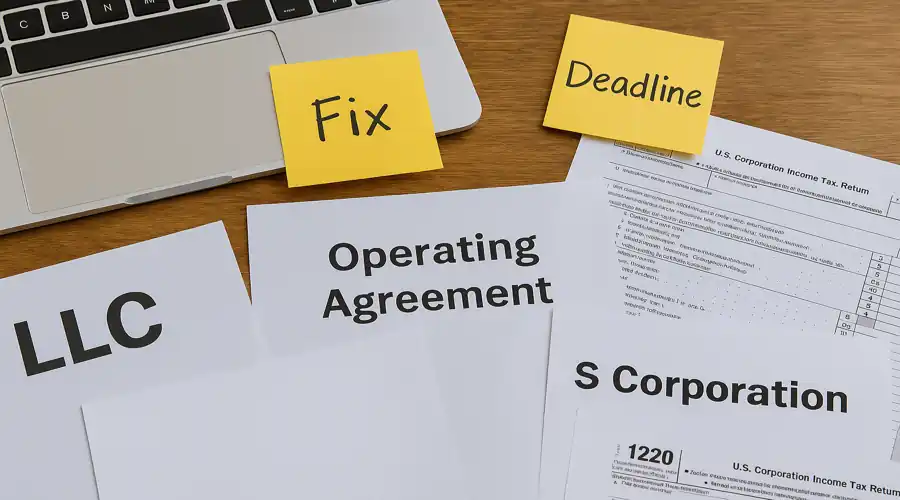You set up an LLC to protect yourself and save on taxes, not to create a mess. If you’ve been going at it on your own or got “sold” the wrong structure, breathe. These are the top ten mistakes I see every week, and every one of them is fixable.
1. Forming in the wrong state
You set up your LLC where you’re doing business, where the property is located, where the employees are located, where you’re located. Period. The “Wyoming/Nevada/Delaware for everyone” pitch is oversold and usually just adds cost and headaches. Now, there can be some additional strategies by adding a layer in Wyoming, Nevada, or Delaware, but that’s another level, and most people don’t need that.
The Fix: Domesticate the LLC into the correct state, or, when the trail is ugly, shut it down and start fresh the right way.
2. Listing yourself as Registered Agent
Every state requires that a new entity, new LLC or corporation, has a Registered Agent. This is the person that’s going to receive mail when it comes to official notices for a potential lawsuit or other government interaction, and that name is public record. If you list yourself as your own Registered Agent, your name and home address become public, and that’s where process servers will show up. No thanks.
The Fix: Hire a professional Registered Agent. You’ll protect your privacy, receive reliable notice, and avoid strangers knocking on your door.
3. Overpaying for Registered Agent service
Some “discount” sites charge $300–$400 per year for the exact same Registered Agent service you can get for a fraction of the cost. This is an annual bill that adds up fast, shop it.
The Fix: Shop around and switch providers. Filing a change with the state is simple, and the savings keep rolling in every year.
4. Using your home as the company address
Every LLC needs both a Registered Agent address and a company address. Most people get the Registered Agent right, but then list their home as the company address—putting their personal info on public record for tenants, clients, or anyone else to find. Some states allow a P.O. Box, others require a physical street address, but either way, your home isn’t the right answer. Having lawsuits, tax notices, or state filings show up in your personal mailbox is a privacy and organizational nightmare.
The Fix: Use a business or “privacy” address instead. Some states require a physical street address, others allow a P.O. Box. Either way, keeping your home off public records is worth it.
5. Skipping the “guts”: operating agreement & corporate book
Filing Articles with the state isn’t enough. That one piece of paper just reserves your LLC name, it doesn’t give you real asset protection. Without an operating agreement, membership certificates, initial minutes, and a corporate book, you’re basically a sole prop with a fancy title. Banks, title companies, and (most importantly) judges won’t respect your LLC if it’s missing the “guts.”
The Fix: Create the missing documents and organize them in a proper company book. These pieces can be backfilled even if your LLC has been around for years.
6. No EIN or separate banking
Too many people set up their LLC and then run everything through their personal checking account. That destroys the liability shield. You also need an EIN (Employer Identification Number) to open accounts, accept payments, issue W-9s, or file the right tax forms. Without it, you’re not separating yourself from the company, and the IRS won’t either. If you’re running the LLC through your personal SSN and checking account, you’re begging for veil-piercing and tax pain.
The Fix: Apply for an EIN directly from the IRS—it’s free. Open a dedicated business bank account and keep business money completely separate from personal funds.
7. Wrong tax election (skipping the S corp)
By default, a single-member LLC is taxed as a sole proprietorship, and you’ll pay both income tax and 15.3% self-employment tax on every dollar of net profit. For many small business owners, that’s thousands of dollars in unnecessary taxes every year.
The Fix: Consider electing S corporation status once your business nets $40k–$50k or more. This lets you pay yourself a salary (subject to payroll tax) while taking the rest as distributions, free of self-employment tax.
8. Falling out of good standing with the state
Every state requires some form of annual renewal—whether that’s a report, a small fee, or both. If you miss the deadline, your LLC can fall out of good standing or even get dissolved. Fixing it later is always more expensive than just keeping it current in the first place.
The Fix: Track your deadlines or outsource them. Staying current is always cheaper than paying penalties or reinstatement fees later.
9. Ignoring compliance filings and reports
Beyond the basic renewal, a lot of states (and now even the federal government with BOI reporting) have additional filings. Skip one, and your LLC loses its legal shield or worse, you get hit with fines and penalties.
The Fix: Stay on top of every filing. Automate reminders, keep a compliance checklist, or use a service provider to make sure nothing slips through the cracks.
10. Skipping annual meetings and company maintenance
Most people think annual meetings and minutes are just busywork. Wrong. This is one of the most powerful things you can do to legitimize your LLC. Holding an annual meeting with your “board” (that can be family, friends, or your mastermind crew) solidifies your asset protection, creates IRS audit protection, and turns the LLC into a real tool for building your American dream. Plus, it’s a tax write-off. You can do it over dinner, during a weekend retreat, even in Cabo if you want.
The Fix: Hold at least one meeting a year, document your minutes, and keep your entity book updated. Think of it as an opportunity to reinforce your business foundation, not a chore.
The Bottom Line
An LLC isn’t one sheet of paper, it’s a system. You need the right state, the right structure, solid documents, separate banking, smart tax elections, and ongoing maintenance. Miss a step, and the protection you thought you had may not hold up when it matters.
Here’s the good news: you don’t have to figure this out alone. At KKOS Lawyers, we help clients clean up existing LLCs, create missing documents, and make sure entities are structured the right way for both protection and tax savings. And with Main Street Business Services, you can hand off the admin work—Registered Agent, privacy address, annual compliance, BOI reporting—so you never miss a deadline or expose your home address again.
If you’re staring at mismatched documents or just not sure your LLC is solid, book a comprehensive consultation today. We’re with you in this. We’ll walk you through what’s working, what’s missing, and exactly how to fix it so your LLC actually does what you set it up to do: protect you and build wealth.









